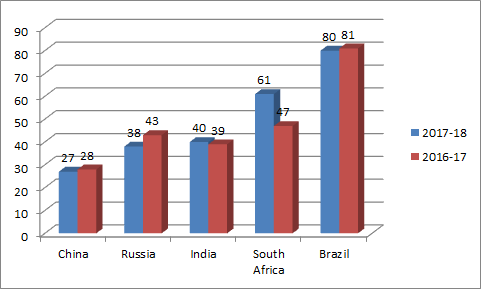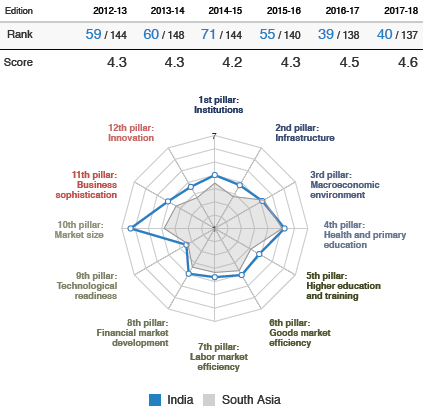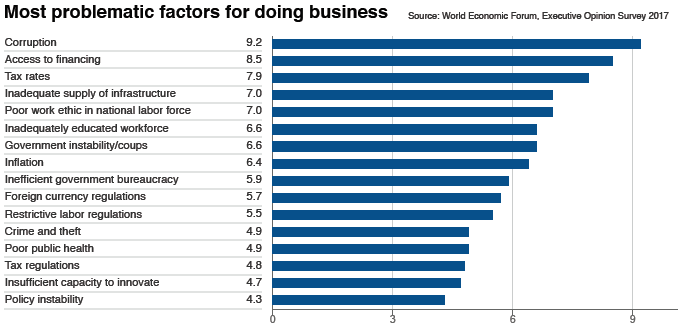
India’s ranking among “competing” nations
Thus, the “Global Competitiveness Report 2017-18”, ranks India 98th in intensity of local competition among 137 countries it analyses, 124th in total tax rate, 131st in number of procedures to start business, 110th in time taken to start business, 124th in trade tariffs, 118th in imports as percentage of gross domestic product (GDP), 104th in flexibility of wage determination, 129th in female participation in labour force, 111th in exports as percentage of GDP, and so on.

Even then, the report notices several “problem areas”, including corruption, access to financing, tax rates, inadequate supply of infrastructure, poor work ethic in national labour force, inadequately educated workforce, and so on. It underlines, “The private sector still considers corruption to be the most problematic factor for doing business in India.”

WEF says, “Asian economies were less exposed to the global financial crisis, but they are facing new problems of their own”, underlining, “Amid a private-sector credit boom in India, the proportion of loans classed as non-performing went from 4 percent to 9 percent in two years.”
Among India’s growing centres of innovations, the report says, “Three Indian locations appear in the top 100: Bengaluru at 43rd (with patent activity focused on computer technology), Mumbai at 95th, and Pune at 96th (both registering among the most patents in organic fine chemistry).” However, they are far behind Shenzen–Hong Kong, ranking 2nd place, and Beijing 7th, it adds.
The report further says that the level of technological readiness of individuals and firms in India, as in China and Indonesia, remains “relatively low”, suggesting that the benefits of these innovative activities are “not widely shared” and “societal gains from innovation breakthroughs do not happen automatically: they need complementary efforts to ensure that more people and firms have the means to access and use new technologies.”
Courtesy: Counterview